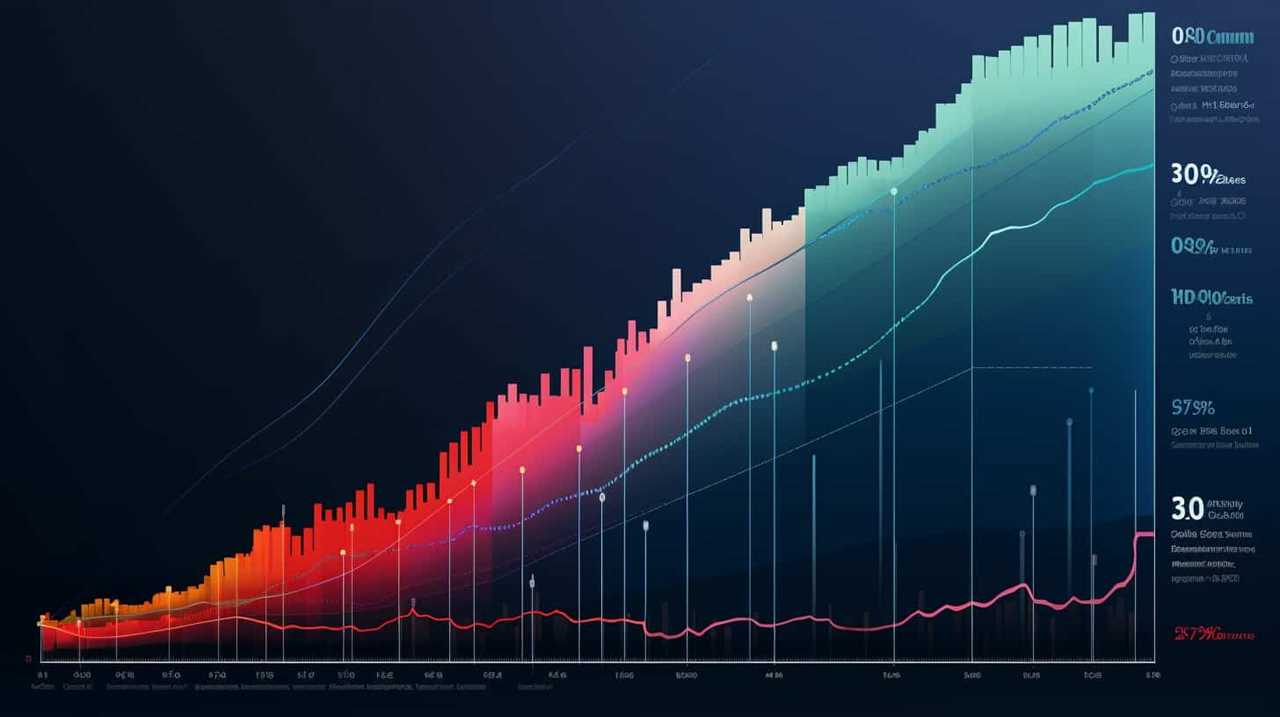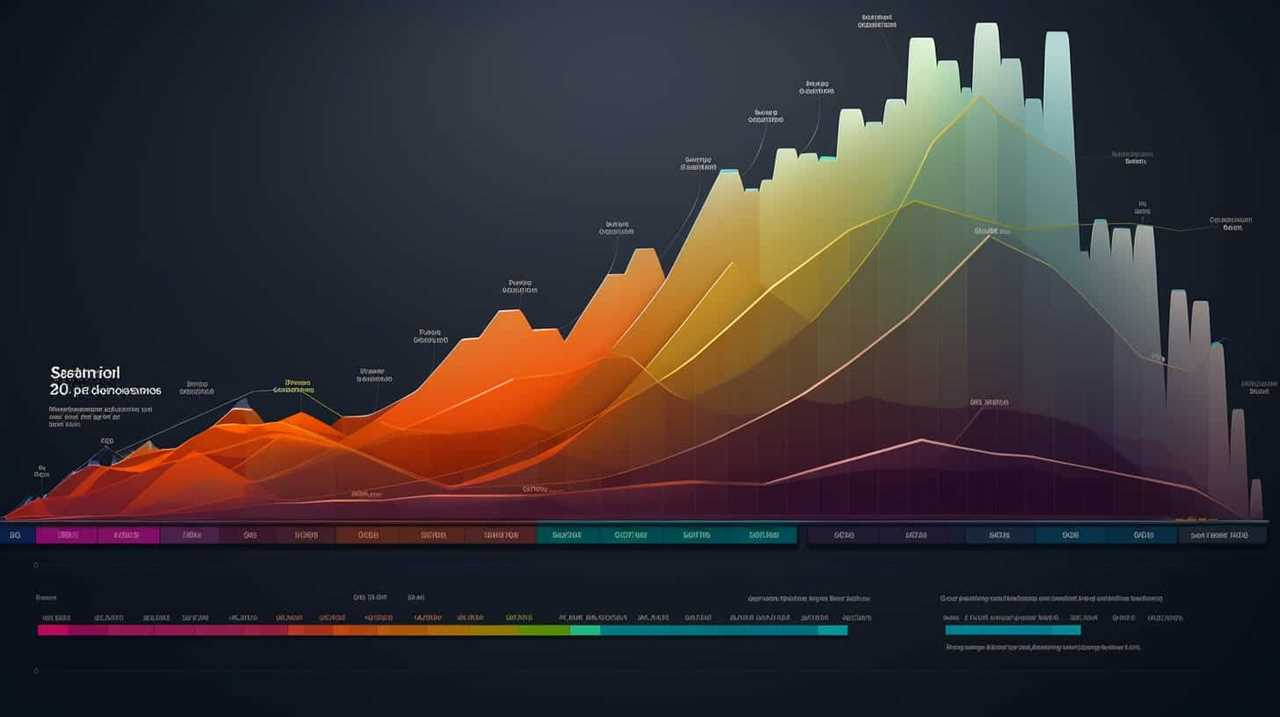You might be asking yourself, ‘Do I really need to grasp all five types of SEO?’ The answer, without a doubt, is absolutely yes!
In this article, we’ll break down the different types of SEO and why they are crucial for achieving online success.
From On-Page SEO to Off-Page SEO, Technical SEO, Local SEO, and Mobile SEO, understanding each type will empower you to optimize your website and dominate the search engine rankings.
So, let’s dive in and master the art of SEO!

Key Takeaways
- On-Page SEO plays a crucial role in improving website visibility and rankings through keyword optimization and content creation.
- Off-Page SEO focuses on enhancing website’s online presence through external factors such as generating high-quality backlinks and engaging in social media marketing.
- Technical SEO optimizes website’s technical infrastructure to improve visibility and performance, including site speed optimization and implementing structured data markup.
- Local SEO optimizes website’s visibility and performance in local search results through strategies like claiming and optimizing Google My Business listing and encouraging online reviews.
On-Page SEO
When it comes to optimizing a website for search engines, on-page SEO plays a crucial role in improving its visibility and rankings.
Keyword optimization and content creation are two important aspects of on-page SEO. Keyword optimization involves researching and selecting relevant keywords to include in your website’s content, meta tags, and headers. By strategically placing these keywords throughout your website, you can increase its chances of appearing in search engine results for relevant queries.
Content creation, on the other hand, focuses on producing high-quality, informative, and engaging content that satisfies the needs of your target audience. This not only helps to attract and retain visitors but also enhances your website’s credibility and authority in the eyes of search engines.
Now, let’s move on to discuss the next type of SEO, off-page SEO.

Off-Page SEO
To improve a website’s visibility and rankings, off-page SEO focuses on enhancing its online presence through external factors. Off-page optimization strategies play a crucial role in driving organic traffic and increasing the authority of a website. By implementing these strategies, website owners can improve their website’s reputation, credibility, and trustworthiness in the eyes of search engines.
One of the key benefits of off-page SEO is the generation of high-quality backlinks. These links act as votes of confidence for search engines, indicating that the website is trustworthy and relevant. Additionally, off-page SEO helps in increasing brand awareness and exposure by promoting the website on various online platforms. Social media engagement, influencer marketing, and content promotion are some effective off-page optimization strategies that can significantly boost a website’s visibility and organic rankings.
| Off-Page SEO Strategies | Benefits of Off-Page SEO |
|---|---|
| Building high-quality backlinks | Improved website authority |
| Social media engagement | Increased brand exposure |
| Influencer marketing | Higher organic rankings |
| Content promotion | Enhanced online visibility |
| Online reputation management | Greater trust and credibility |
Technical SEO
Technical SEO involves optimizing a website’s technical infrastructure to improve its visibility and performance on search engines.
To understand the basics of Technical SEO, consider the following:

- Website Architecture: Ensuring a well-structured website with clear navigation and logical hierarchy improves user experience and search engine crawlability.
- Site Speed Optimization: Optimizing website speed and performance is crucial for user satisfaction and search engine rankings. This includes minimizing file sizes, reducing server response time, and leveraging browser caching.
- Mobile Friendliness: With the increasing use of mobile devices, having a responsive website that provides a seamless experience across different screen sizes is essential for both user engagement and search engine rankings.
- Structured Data Markup: Implementing structured data markup using schema.org vocabulary helps search engines understand and display website content more effectively in search results.
Local SEO
Local SEO involves optimizing a website’s visibility and performance in local search results. For small businesses, local SEO is crucial to attract customers in their specific geographic area.
One important aspect of local SEO is the use of local citations. Local citations are references to a business’s name, address, and phone number (NAP) on other websites, directories, and platforms. These citations help search engines verify the legitimacy and relevance of a business in a particular location. They also contribute to improving the website’s local search rankings.
It’s essential for small businesses to ensure that their NAP information is consistent and accurate across all online platforms. By optimizing local citations, small businesses can enhance their online presence and increase their chances of being found by local customers.
Mobile SEO
One of the key aspects of SEO is mobile optimization. With the increasing use of smartphones and tablets, it’s crucial for websites to be optimized for mobile devices.

Here are four important factors to consider when it comes to mobile SEO:
- Responsive Design: Ensure that your website is designed to adapt and display properly on different screen sizes and resolutions.
- Mobile-Friendly Content: Create content that’s easy to read and navigate on mobile devices, with clear headings, shorter paragraphs, and concise sentences.
- Page Speed: Optimize your website’s loading speed for mobile devices as slower loading times can negatively impact user experience and search rankings.
- Voice Search Optimization: With the rise of voice assistants like Siri and Google Assistant, focus on optimizing your content for voice searches by using natural language and long-tail keywords.
Frequently Asked Questions
How Long Does It Typically Take to See Results From Implementing On-Page SEO Strategies?
On-page SEO strategies can yield results within an average timeframe, but success varies based on factors like website size and competition. Measuring success through increased organic traffic and higher search engine rankings is crucial.
What Are Some Effective Ways to Build High-Quality Backlinks for Off-Page Seo?
There are several effective ways to build high-quality backlinks for off-page SEO. By creating valuable content and engaging with other websites, we can increase website traffic and improve our rankings.
Can You Provide Some Examples of Common Technical SEO Issues That Websites May Face?
Common technical SEO issues can hinder a website’s performance. Examples include slow page speed, broken links, and duplicate content. Resolving these issues involves optimizing code, fixing broken links, and implementing canonical tags.

How Does Local SEO Differ From Traditional SEO Practices?
Local SEO differs from traditional SEO practices in that it focuses on optimizing a website for local searches. This involves targeting specific geographical areas, optimizing on-page and off-page SEO, and placing a high importance on local citations.
What Are Some Key Factors to Consider When Optimizing a Website for Mobile Seo?
When optimizing a website for mobile SEO, it’s crucial to prioritize mobile responsiveness and user experience. For example, ensuring fast loading times and easy navigation can greatly improve mobile rankings.
Conclusion
In conclusion, SEO is a complex and ever-evolving field with five key types: On-Page, Off-Page, Technical, Local, and Mobile.
Each type plays a crucial role in optimizing a website for search engines and driving organic traffic.

From optimizing content and keywords to building quality backlinks and improving user experience, SEO encompasses a range of strategies to help websites rank higher and attract more visitors.
So, if you want to boost your online presence and reach a wider audience, mastering these SEO types is a must.









